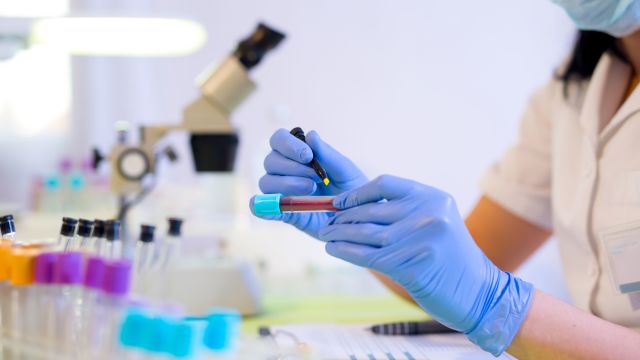Rheumatoid arthritis (RA) is a chronic autoimmune disease that causes pain, stiffness and swelling in the joints. While treatments are available to lessen the inflammation that causes these symptoms, not every drug works for every patient. Healthcare providers have to solve the puzzle by matching the patient with the correct treatment before the disease permanently damages the joints.
One option for patients with RA are biologic treatments. Typically prescribed to patients with moderate to severe RA, biologics are medicines that work on specific parts of the immune system, blocking specific types of cellular activity that contribute to symptoms.
However, not every biologic treatment is effective for every patient, and finding a treatment that does work can take some trial and error.
A blood test for choosing an RA treatment
A blood test may help determine which treatment will be more likely to benefit a person with RA. Researchers from Mayo Clinic, the Feinstein Institute, the University of Alabama and other institutions have found that a molecule in the blood—serum interferon (IFN)—may help predict if biologics will work. It appears that baseline levels of IFN, a molecule responsible for activating an immune response, may indicate which patients will have a poor response to biologics.
The research team used blood samples from available registries to study 32 RA patients. Measurements of two specific kinds of interferon (alpha and beta) were taken before and after treatment with TNF-alpha inhibitors (a type of biologic). The researchers found that an increased ratio of beta to alpha interferon in the patients’ pretreatment serum sample was associated with lack of response to the biologic treatment.
This same ratio was also associated with higher disease activity scores during treatment with biologics. Disease activity score is a measurement of the activity of the disease—the amount of inflammation and pain—at a particular point in time. These scores are one way researchers in clinical trials determine whether a medication is working. The research findings were later confirmed in a second, independent group of 92 patients.
What this means for patients today
While more research is needed before this kind of pretreatment screening becomes part of standard practice, these results are promising. Healthcare providers hope that blood tests like this could be used to help determine which medications will have the most benefit to specific patients.






